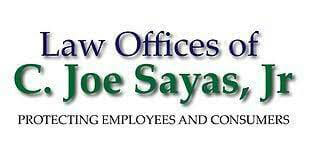
Donovan Sebastian worked in sales for Sprint/United Management Co. Sprint provided him and other employees with vehicles for them to travel between stores.
Sebastian, on behalf of himself and other employees, sued Sprint for withholding wages purportedly because the employees drove the company vehicles for personal use. The employees also claimed that they were improperly classified as exempt from overtime. In addition, the employees claimed Sprint did not provide meal or rest breaks, pay wages due upon termination, or provide accurate itemized wage statements.
There are several noteworthy issues in the employees’ claims, many previously discussed in this column. Let’s revisit one issue – the question of deductions or withholdings. Can the employer simply withhold from the employees’ wages for whatever reason it deems fit?
Under California law, deductions are generally permissible if they are 1) authorized by law; 2) expressly authorized by the employee in writing; 3) expressly authorized by collective bargaining or wage agreement; and 4) deductions authorized in writing by an employee for a valid obligation such the repayment of a loan or payment of a purchase.
However, there are several express limitations on permissible deductions. The following may provide some helpful guidelines:
1) No right of offset for employee’s debts to employer – An employer is prohibited from deducting payment of a debt that an employee owed to the employer. The employer has the same recourse as all other creditors – which is to get an order from the court to have the debt paid.
However, an employee may authorize an employer to withhold some amounts owed by the employee to pay a debt to an employer. The employee must acknowledge the debt in writing. This is allowed particularly when the employee had been making periodic payments on an agreed-upon basis. But if the employee is terminated before the entire debt is paid, the employer may not “accelerate” the balance or obtain a balloon payment. Rather, the employer may withhold from the employee’s final paycheck only the authorized amount then due for that pay period.
2) No taking back of wages earned and paid – It is unlawful for an employer to collect from an employee any part of the wages that had already been earned and paid to the employee. However, the employer may take back overpayment of wages that had not been earned. Additionally, the employer and employee may agree that an employee’s final wage will be dependent on the occurrence of an event after the employee has done the work or where the employee has already received an advance payment. In such cases, the employer may set off, against future wage payments, any excess amounts previously paid. Such a system does not violate the prohibition on the employer’s recapture of wages already earned or paid.
3) No deduction for business losses caused by employee negligence – Unless the employee was dishonest or willfully or grossly negligent, an employer may not deduct for ordinary losses caused by an employee. Losses due to an employee’s simple negligence, such as cash shortages and breakage or loss of equipment, “are inevitable in almost any business operation” and must be borne “as expenses of management.”
In the case of the employees against Sprint, the parties agreed to settle the case, with Sprint agreeing to pay $3.25 million to the aggrieved employees.
The Law Offices of C. Joe Sayas, Jr. welcomes inquiries about this topic. All inquiries are confidential and at no-cost. You can contact the office at (818) 291-0088 or visit www.joesayaslaw.com. [C. Joe Sayas, Jr., Esq. is an experienced trial attorney who has successfully recovered wages and other monetary damages for thousands of employees and consumers. He was named Top Labor & Employment Attorney in California by the Daily Journal, consistently selected as Super Lawyer by the Los Angeles Magazine, and is a Presidential Awardee for Outstanding Filipino Overseas in 2018.]

